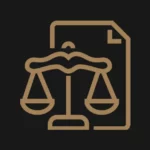

Estate owners rely on estate planning and elder law strategies to preserve assets, protect their best interests as they age, and honor their wishes after death. Trusts are smart and well-known estate planning tools that name or appoint a trustee to administer, protect, and distribute assets according to the terms and fiduciary responsibilities. Most estate owners establishing a trust assume their trustee will follow through on trust responsibilities. Unfortunately, some trustees neglect or break their agreement to fulfill their duties and honor the trust's terms.
The case discussed in WealthCounsel's article, "Trustee of Living Trust Who Was Beneficiary of Decedent's Residuary Estate Had Duty to Collect and Protect Assets Not Yet Transferred to Trust," reminds us to take steps to appoint the right trustee and draft the trust's terms carefully. This article answers the questions: What are a trustee's responsibilities? What does it mean to breach their duties? How can an estate owner avoid that situation?
The beneficiaries' best interests are central to a trustee's responsibilities. They gather and inventory the estate’s assets, including funds and other property, to manage and protect them until it’s time to distribute them. Trustees keep the assets separate from other funds and property, maintain accurate records, and report their trust-related activities. A trustee has fiduciary duties to act in alignment with the trust’s terms, avoid conflicts of interest, and be diligent and honest. For more on Tyler trustee duties, read our blog “Tyler Trustee Duties: What Should I Know?”
The case discussed in WealthCounsel's article involved three beneficiaries, three co-trustees, and assets meant for a restated revocable trust. Richard Ripps, the decedent, intended to distribute the remainder of his estate to his three children and their mother. The mother, as a co-trustee, sought damages and to remove another co-trustee who happened to be Richard’s widow, Barbara Lembo. The mother took Barbara to court, asserting that she did not collect and protect trust property, among other things, and breached her co-trustee duties.
Richard Ripp’s trust underscores a trustee's responsibility to protect the heirs' best interests and trust assets through proper administration. In this case, the Connecticut Supreme Court emphasized that trustees are entrusted with a fiduciary duty from acceptance. This duty extends to the prudent collection and protection of assets. If you are experiencing difficulties in working with your trustee or have a dispute over an estate, we provide litigation services for Tyler residents to help resolve controversies.
Consider the friends or family members you can rely on who are sensible enough to be diligent trustees. Communicating with a potential trustee goes a long way towards ensuring that they fulfill their responsibilities. Asking the person if they can and are willing to act as a trustee can give you peace of mind that they will honor trust terms and act in the beneficiaries’ best interests.
Experienced estate planning attorney Bradley Campbell can help you outline detailed trust administration terms and instructions. Clarity on your wishes, administrative duties, and beneficiaries’ interests helps your trustee or co-trustees fulfill their duties and prevent disputes that might lead to Tyler county court intervention.
Trusts are core estate planning tools that protect and distribute your assets after you are gone. It's important to appoint a trustee who will act according to the trust's terms and fiduciary responsibilities. For comprehensive estate planning, book a consultation with Tyler estate planning attorney Bradley Campbell at the Campbell Law Firm.
Reference: WealthCounsel (Jan 19, 2024) "Trustee of Living Trust Who Was Beneficiary of Decedent's Residuary Estate Had Duty to Collect and Protect Assets Not Yet Transferred to Trust."




